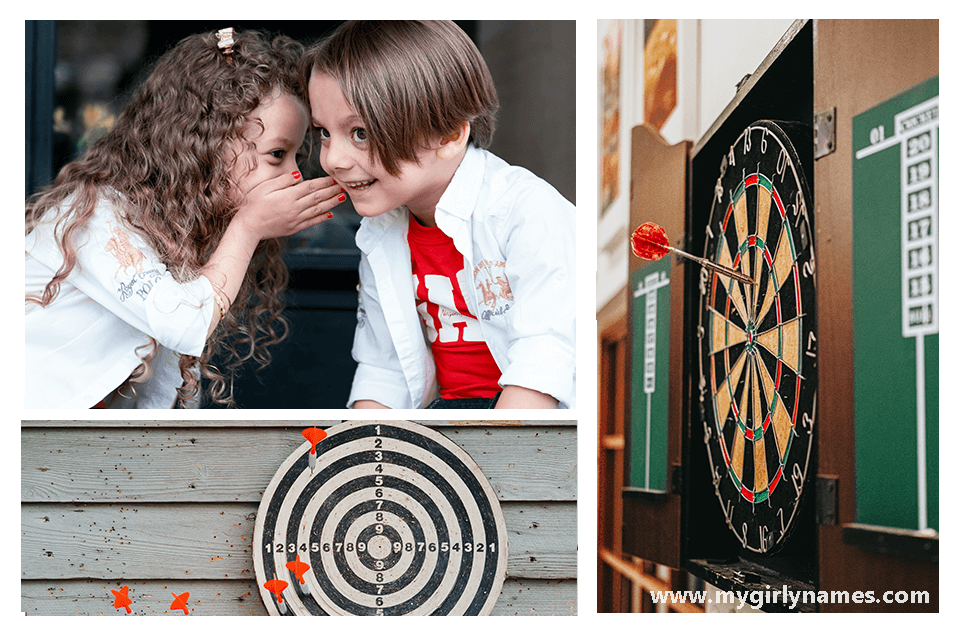When discussing enjoyable and engaging activities for children aged 5 to 10, playing darts might not be the first thing that comes to mind. However, let us share with you the incredible benefits that this seemingly straightforward game can bring.
From refining hand-eye coordination to fostering a sportsman’s spirit, darts can be a valuable addition to your child’s developmental journey.
Before delving into the benefits, we’d like to introduce you to a comprehensive resource and knowledge hub about darts that we’ve come across. The website is Ingahub. Not only does it offer valuable information, but it also provides specific guides for various darts games.
1- Improved Hand-Eye Coordination
At this stage of a child’s life, their hand-eye coordination is still in the developmental phase. Playing darts requires aiming and throwing accurately, which naturally improves their ability to synchronize visual information with motor skills. When we introduce children to this game, they learn to focus on the target while calculating the required force to hit it accurately. This fundamental skill isn’t only beneficial for darts but also has a positive impact on various other activities such as writing, drawing, and even playing musical instruments.
2-Enhancement of Motor Skills
The action of throwing a dart involves a complex blend of basic movements. As children consistently engage in this action, their refined and overall motor skills receive substantial exercise. The delicate adjustments necessary for precise aiming and controlled dart release contribute to refining their motor skills. Over time, this can lead to improved hand dexterity and overall coordination, making everyday tasks and other physical activities more effortless and precise.
3-Mathematical Learning
Believe it or not, playing darts can be a fun way to introduce children to fundamental mathematical concepts. As they keep track of scores and calculate their points, they are unknowingly applying mathematical skills in a practical context. This casual exposure to numbers, addition, and subtraction can establish a foundation for more complex math learning in the future. We’ve observed that children often grasp concepts more readily when they’re integrated into an enjoyable and interactive experience.
4-Focus and Concentration
In today’s fast-paced world, nurturing focus and concentration in children is more vital than ever. Playing darts demands a high level of concentration as players aim for their target. As they develop strategies and work on improving their accuracy, children naturally elevate their ability to concentrate on a task. This newfound focus extends to their schoolwork and other activities, contributing to improved learning outcomes.
5-Sportsmanship and Social Skills
Darts isn’t just about hitting the bullseye; it’s also about playing with manners and showing respect for opponents. When children engage in friendly matches, they learn about good sportsmanship, how to handle victories and defeats gracefully, and the significance of fair play. Furthermore, darts games often occur in social settings, whether it’s at home with family or at a local community center. This provides children with opportunities to interact with others, form new friendships, and develop essential social skills that will benefit them throughout their lives.
6-Strengthening the Parent-Child Bond
Engaging in activities like darts provides an opportunity for parents and children to bond. Playing together creates a positive and shared experience that strengthens the relationship. Whether it’s a friendly match or a family tournament, darts can foster open communication, laughter, and quality time spent together.
7-Patience and Perseverance
In the realm of darts, success doesn’t come overnight. Children quickly realize that achieving accuracy and consistent performance requires practice and patience. Through the process of trial and error, they learn the value of perseverance and the rewards it brings. This lesson extends beyond the darts board, teaching them that persistence is crucial when faced with challenges in any endeavor they pursue.
8-Boosting Self-Confidence
Witnessing their own progress in darts can work wonders for a child’s self-confidence. As they see themselves getting closer to the target or achieving higher scores, they develop a sense of achievement and pride in their abilities. This boost in confidence can spill over into other aspects of their lives, encouraging them to approach new challenges with a positive mindset.
9-Hand Strength and Control
Playing darts involves gripping the dart firmly and maintaining control during the throw. This action naturally strengthens the muscles in the hand, contributing to improved hand strength and control. This physical benefit can support children in various activities that demand precise motor skills, from writing and drawing to using utensils and tools.
Conclusion
Instead of letting children spend their time on smartphones and tablets, why don’t you encourage them to engage in recreational sports activities like darts? From enhancing motor skills to promoting communication skills and confidence, these are qualities that children need in their developmental journey. So, the next time you’re considering enjoyable activities for your child, don’t forget to include darts on the list – the benefits might truly surprise you.
Related Links :
Cute Baby Girl Names
Name combiner
How to Save Money on Baby Clothes?
The Best Side Gigs For Cash-Strapped Single Parents
Strong Bonding: Effective Kids Communication





